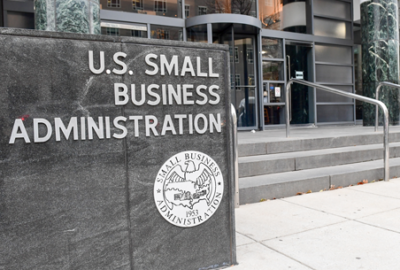Best listening experience is on Chrome, Firefox or Safari. Subscribe to Federal Drive’s daily audio interviews on Apple Podcasts or PodcastOne.
- When the General Services Administration re-opened its child care facilities after the COVID shutdown, it did not test the water, according to a GSA inspector general’s audit. In some cases, that presented a risk for elevated levels of contaminants, like lead and copper in their drinking water. The IG said that 71 of the agency’s 74 childcare centers failed to test their water after re-opening in 2020, and even those that did failed to follow protocols, potentially missing some contaminants. The audit recommends thorough flushing and comprehensive testing.
- Other Transaction Agreements let the Defense Department award contracts without following most of its usual procurement rules, but they’re only supposed to be used in certain circumstances, like when the company doing the work does not normally work with DoD. But a new report from the Pentagon’s inspector general documented some major loopholes. For instance, huge companies like Microsoft and Verizon won OTAs, even though they do hundreds of millions of dollars in Defense work each year. The IG also found defense contractors sometimes set up brand new subsidiaries just to bid on OTAs.
- The federal judiciary awarded a major contract to keep its aging case-management systems up and running. The blanket purchase agreement to GDIT is worth up to $300 million over the next five years. Judicial administrators said they want to use the contract for a wide range of services, including agile application development and cybersecurity. But procurement documents don’t specifically address whether the contract will improve PACER. That’s the creaky and widely-criticized website the judicial branch uses to make electronic court documents available to the public — for a charge of 10 cents per page.
- Bipartisan lawmakers are looking to limit some feds’ ability to hold or trade individual stocks. Rep. Michael Cloud (R-Texas) and Rep. Jared Golden (D-Maine) have introduced the DIVEST Act, raising concerns about senior officials’ access to sensitive information that could influence stock trades. Under the legislation, the president, vice president and senior federal employees, as well as their spouses, would be banned from actively trading stocks while working for the government. The legislation would still allow investments in mutual funds, exchange-traded funds and Treasury bonds.
- The first report from a technology studies group is calling for a new public-private model to win the technology competition with China. The Special Competitive Studies Project’s first report urged the government to set grand technology objectives to galvanize innovation in key areas like biotechnology and artificial intelligence. The nonprofit is a follow-up to the influential National Security Commission on AI. The report also suggested bringing government, industry and academia together to develop a national process for identifying important emerging technologies. The authors said the period between 2025 and 2030 will be a critical time in the US-China tech competition. (Federal News Network)
- The Defense Department has taken dramatic action to deal with delays in a new governmentwide acquisition system. The delays have gotten so bad with the transition to the new unique entity identifier on SAM.gov that DoD isn’t requiring contractors to have a new number to do business with them for the next six weeks. The Defense Pricing and Contracting office issued a deviation to the FAR last week that lets contracting offices do business with companies who aren’t fully registered in the governmentwide acquisition system. DoD said the company just has to prove it has initiated or attempted to start the SAM registration process. The deviation lets the company not be actively registered in SAM until 30 days after award or the date of its first invoice, whichever comes first.
- The Biden administration fills two positions that are new to government and will run key initiatives. The White House appointed Dr. Renee Wegrzyn as the director of the Advanced Research Projects Agency for Health. The White House established the new research arm in May within the National Institutes of Health. Meanwhile, the Office of Management and Budget is naming Elizabeth Carr as Tribal Adviser to the director. The position is the first of its kind at OMB, created out of conversations with Tribal leaders. Carr will help coordinate Tribal priorities across OMB’s budgetary, management and regulatory functions, while working with other key leaders across government.
- The Federal Labor Relations Authority issued a complaint against one leader at the Equal Employment Opportunity Commission. The authority claimed that EEOC’s field office director in Tampa, Florida, violated federal labor law by moving the bargaining unit out of its office location without holding union negotiations. The American Federation of Government Employees filed two unfair labor practice complaints last year against EEOC, regarding the mandated office evacuation. The commission said it’s in the process of reviewing the complaint.
- The Small Business Administration may have paid out COVID relief funds to overseas fraudsters. A review by the SBA Office of Inspector General found a number of applications for Economic Injury Disaster Loans from foreign IP addresses had been flagged as fraudulent, but not properly reviewed. SBA paid more than $1.3 billion in loans, grants and advances to applicants from foreign IP addresses between March 2020 and November 2021. (Federal News Network)
- Congress is inching closer to a stopgap funding bill. House Majority Leader Steny Hoyer (D-Md.) said Congress will pass a continuing resolution this year and that the Senate is likely to move first on the bill to avoid a government shutdown. Hoyer told Bloomberg TV that he hopes the Senate will move this week or early next week, to be able to meet the September 30 deadline.
- The House is set to vote on a bill revoking the Securities and Exchange Commission’s real estate leasing authority. Since 1990, the SEC has had the authority handle its own leases, a job typically handled by the General Services Administration. Congresswoman Eleanor Holmes Norton (D-D.C.) first introduced the bill in 2011, after the SEC engaged in an improper lease. The bill, if passed, would put the GSA in charge of handling SEC real estate procurements.
- The Cybersecurity and Infrastructure Security Agency is asking for feedback on landmark cyber-incident reporting rules. CISA also plans to hold public listening sessions in 11 cities around the country this fall. The new rules will require critical infrastructure operators to report cyber incidents to CISA within 72 hours and ransomware attacks within 24 hours. But first the agency needs to write the regulations. (Federal News Network)
Copyright
© 2024 Federal News Network. All rights reserved. This website is not intended for users located within the European Economic Area.





